Cycling Guide to Lilliput (1-10)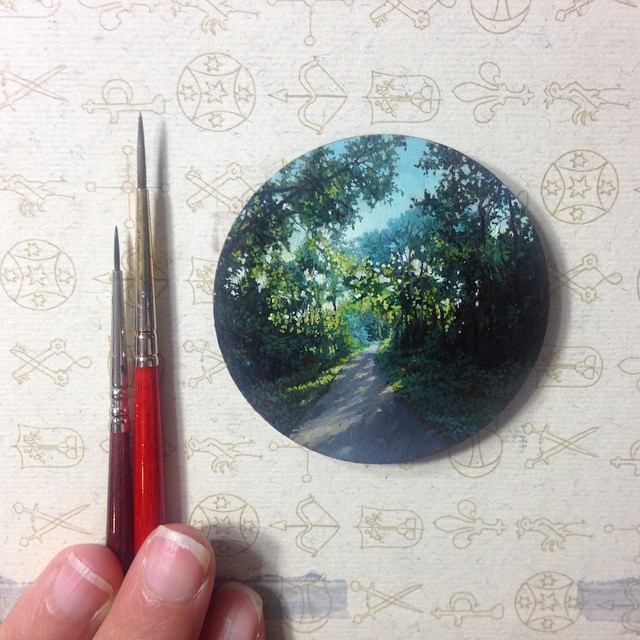 When people find out about her long-distance cycling trips, they ask her questions. Why do you go on these trips by yourself? What are you thinking about when you’re on that bike of yours for hours on end? Don’t you, like, get lonely? She supplies them with satisfactory answers, sensible words. So I can immerse myself in nature. I think about the colors I see, the shadows, the light. My art keeps me company. None of these statements are false, but they aren’t exactly true, either. The truth is, she rides because she can. She rides because it is what she wants to do. She rides because she is not not riding. When she is on her bike, she is on her bike. When she sees the sunlight filtered through the leaves, she sees the sunlight filtered through the leaves. She is there, right there, slipstreaming through the wind. She feels that wind, its heat, its velocity. Blowing by her cheeks, raking through her hair, tickling her eyelashes. No past, no future, just the present, the omnipresent, the now. She follows the path. The path follows her. Off she goes. 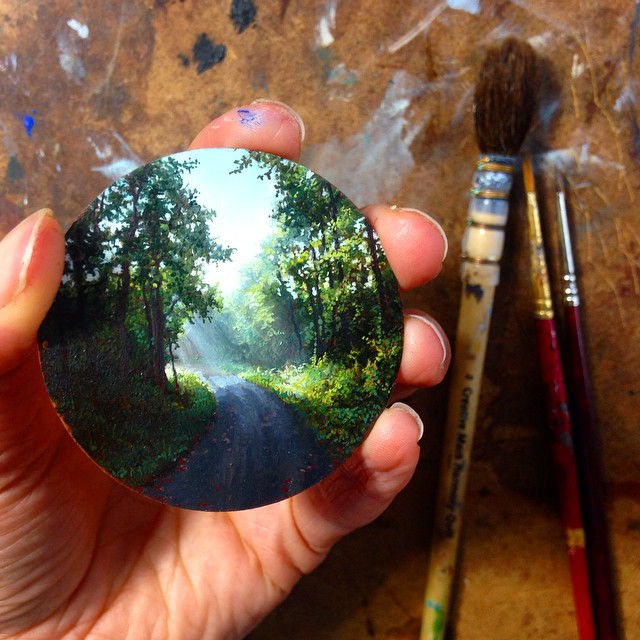 The first day is easy breezy. The second day? Not so much. On the second day, the giddiness of newness has worn off. On the second day, her legs are sore. On the second day, she thinks to herself, So why am I doing this again? But then she finds her rhythm, or perhaps it’s the rhythm that finds her. It starts with the pedals, their simple circular motion, repeated like a mantra. She begins to anticipate the gentle curves of the road ahead, almost as if she’s been here before. As she rides over the uneven terrain, each bump is like a gentle nudge from an old friend. And then, the sunlight. Just a moment ago, it wasn’t there, but now, it’s as if those rays have always existed. She downshifts to pick up speed. She wants that light. She needs that light. Her calves burn, she can hardly breathe, but she’s so close now. One more push . . . and she slides into it, the brightness of the beams, the warmth of the air. On her bare arms. On her upturned face. Oh yes. Now I remember. 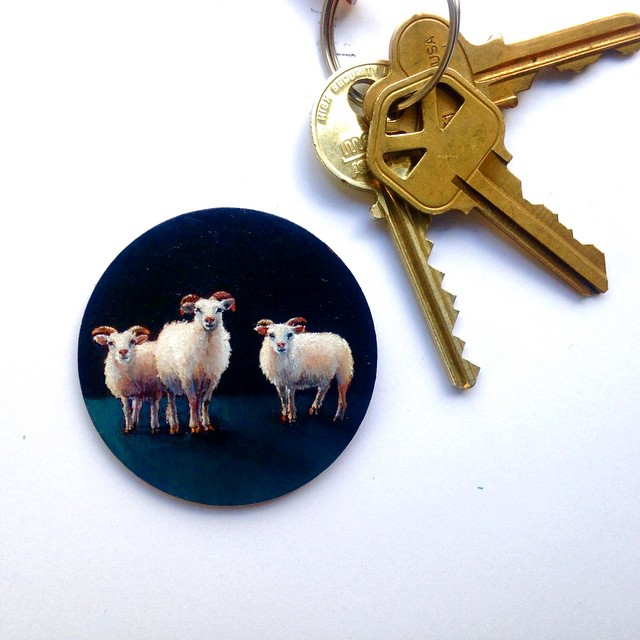 She should’ve stopped an hour ago because darkness has fallen, but she doesn’t want to. There’s a part of her that wants to ride until the sun rises. She could do it. She’s done it before. The moon is almost full, enough to illuminate her way. She’ll take it easy. She’ll take in the shadows, take in the stillness of the forest. As soon as she makes up her mind to go all night, she sees the sheep. Three of them, in the middle of the path, slowly turning to look up at her as if they’ve been interrupted from deep conversation. She glides to a stop and dismounts from her bicycle. She leans it against a boulder, its craggy face bearded with moss. The wind rustles the leaves. A squirrel scampers through the thicket of the underbrush. The tallest sheep, the one out in front, opens its mouth. It yawns. And now she feels it, her own mouth opening wide. She breathes in. She holds the air. She holds the world in her lungs, for a moment. 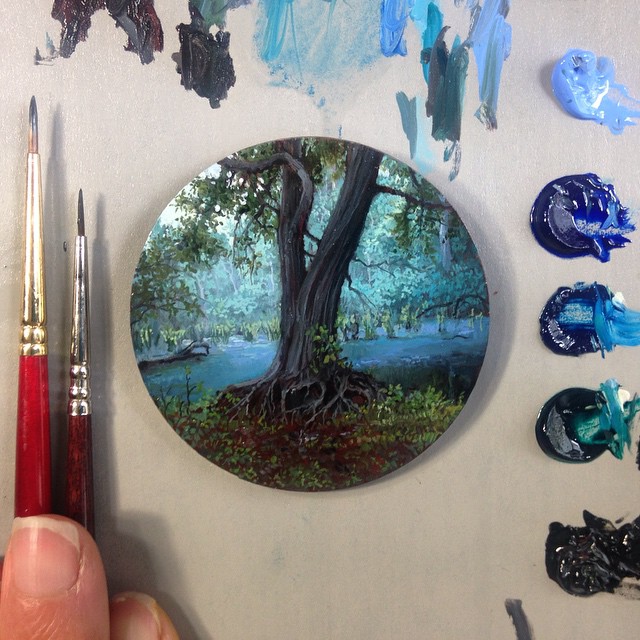 She wonders why she’s here, at this particular place, in this particular moment. Because she could be anywhere. She could be back home, within the circumference of her everyday life, walking to work, greeting her friends and colleagues, sitting on her favorite park bench as she bites into a sandwich. No, she’s here, next to this tree. She lays her hands on the bark and presses, the roughness prickling her palms. She takes in its ancient scent, the coalescing of the aging wood and the decaying understory. The exposed roots of the tree are like fingers clawing into the dirt, and its branches are limbs that aim for the sky. She removes her sneakers. She removes her socks. She walks barefoot around the tree until she arrives on the other side, the one that faces the river. The earth is softer here, and she feels . . . invisible. If someone were to pass by where she’d just been standing, they wouldn’t see her at all. All they would know are these trunks, these waters, this solitude. With her shoes in her arms and her toes in the ground, she thinks: I am here. And I am not. 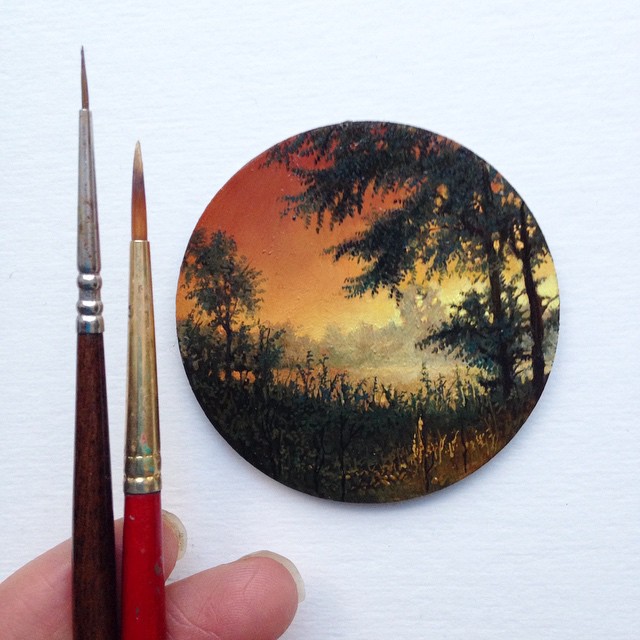 Fifty-six years from now, she’s ninety years old. It’s a Tuesday. The garbage truck on the street below her apartment pierces the calm with its pointed beeps and thoughtless clangs. I wake to sleep, she thinks. She pushes down her covers, sits on her bed, places her feet on the wooden floor. Flexes her toes, feels her way into her slippers. She stretches her arms, gently. And take my waking slow. She rises. As she makes her way to the kitchen, the light streaming through the small round window above the sink gives her pause. It may be the morning sun that produces these colors, a burnt orange that fades to a burnished yellow as she leans against the wall and watches, but there’s something more at work here, a memory, the rush of her past as she rides into the mist, into her youth, into a dawn when she was a girl so full of nothing and everything, her hair swaying in the breeze, her arms outstretched, in flight. 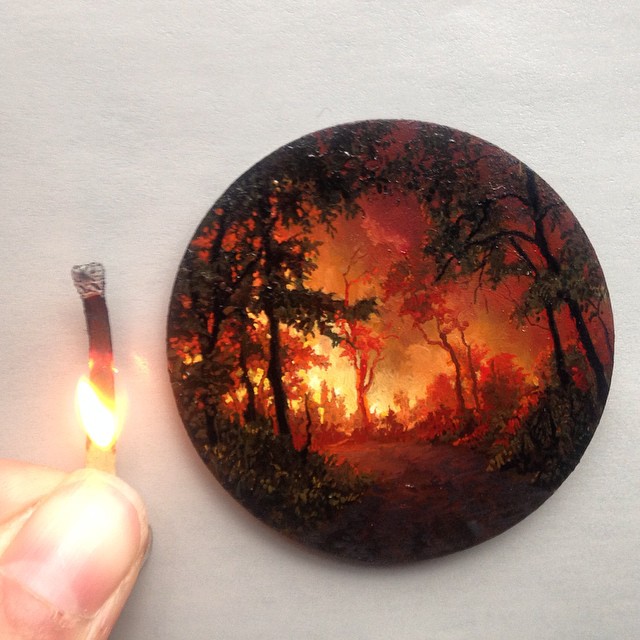 She is six years old, and she’s watching her father pack his tobacco pipe. He does this once a day, after dinner, and it is an elaborate affair, a ritual. He unwraps the black velvet cloth one corner at a time, and in the center of that soft blanket lies the wooden pipe, its body the color of dark cherries, the mouthpiece tapered like a comma. He opens the gold drawstring of the white pouch and dips his thumb and forefinger for a pinch of black tobacco. His thick fingers belie their deftness; not a single particle of tobacco is lost in the transport from the bag to the well. And now he removes a matchstick from a silver box and places it in the middle of his palm. “For you, m’lady,” he says, and she takes his offering slowly, with gravitas, for this is the only time she is allowed to strike a match. The sharp scent of sulfur as the head catches fire, the violence of transformation, the darkness of decay: life, then death. She holds the burning match for as long as she can. It is never long enough. 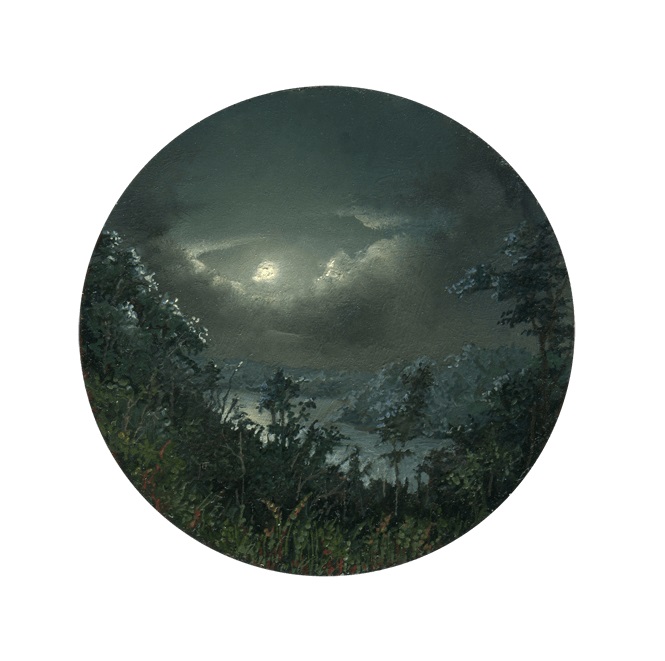 When the moon is full, the moon might as well be the sun. She still considers it a blessing to be able to read text as small as newspaper print by moonlight alone, but not always. Sometimes it feels like a backdoor curse, for when she shuts her eyes inside her tent tonight, it’s as if there’s a spotlight on her eyelids. She tries a trick that sometimes works. In one of the backpack’s pockets is a stethoscope. She slips the earplugs into her ears and places the chestpiece against her heart. Ba-dum. Ba-dum. Ba-dum. One hundred, two hundred . . . all the way to a thousand beats, but still no slumber. She unzips the door on the tent and steps out onto the chill of the night. As much as she wants to be angry at the moon, she just can’t. Look at it. How can she stay mad at such a scene that has presented itself in front of her? It’s as if the moon is a baby and the surrounding clouds are its cradle. Though if that were the case, shouldn’t the moon be going to sleep? Pretty please? 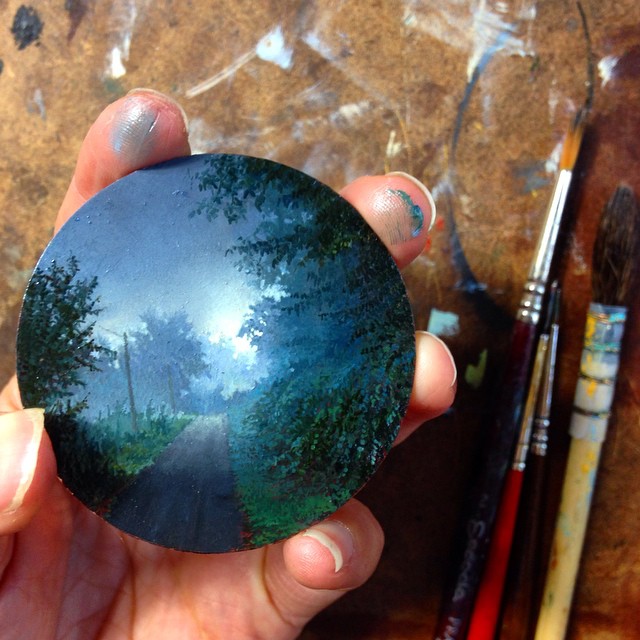 There’s something about dusk that gets her mind to wander. Like where she’s going to spend the night. Like those clouds over there portend rain, which means she’ll need to dig through her backpack and pull out her windbreaker. She slows down, tries to realign with all that surrounds her. She passes by tendrils of honeysuckle, their sweetness lingering in the air. She breathes in deep, breathes out even deeper. No. Her thoughts are a scramble—her bank account, which has enough but never feels like there’s enough. Her parents, with whom she hasn’t spoken since Easter, not out of malice but perhaps a more insidious reason, complacence. It’s been even longer with her brother. She can’t even remember when they last talked on the phone. Yes, they exchange texts every now and then, but it’s not the same. She needs to be a better big sister. And what about him? Yes, him. She knows he misses her, and she misses him just as much, even if he has trouble believing it. But this trip, this journey—it’s hers and hers alone. He understands it in his head, but in his heart . . . Oh, Night. Fall on me. 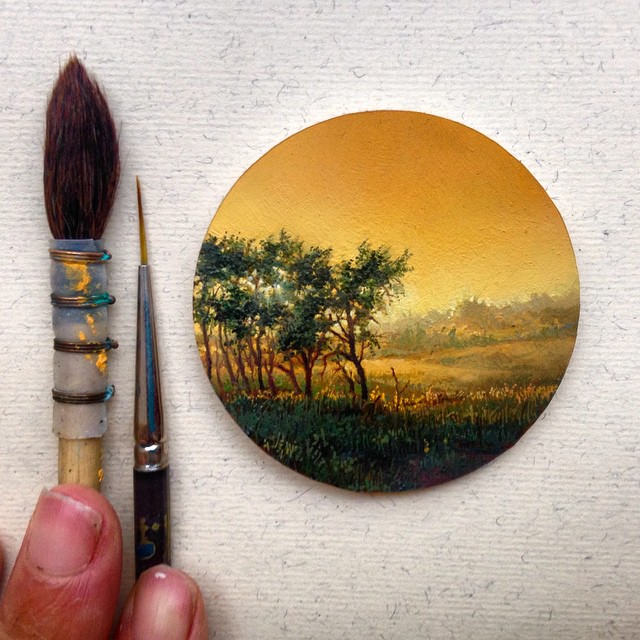 In her dream, she’s a tiger and sitting in an airplane seat. The plane is descending, a minute from touching ground. Out her window, the sky is the color of sand. A few rays of the early morning sun peek through the leaves of a cluster of trees. Africa, she thinks. I’m in Africa. She’s unsure whether she is actually a tiger or if she is wearing a costume, and this unnerves her. She looks down at her paws. They feel like hands. How would she know what paws feel like? She’s frustrated. She looks to her seatmate, but there is no one there. Across the aisle, those two seats are empty, too. The plane does not land; it just stops. “You’re not home,” her brother says. He’s not a tiger, he’s the boy she’s always known. He stands where the stewardess would stand to instruct about the emergency exits, the floating seats, the oxygen masks. She wants to be where he is. Her seatbelt remains tight against her belly. Her brother watches as she fumbles with the clasp. She claws at the metal, but it just won’t open. 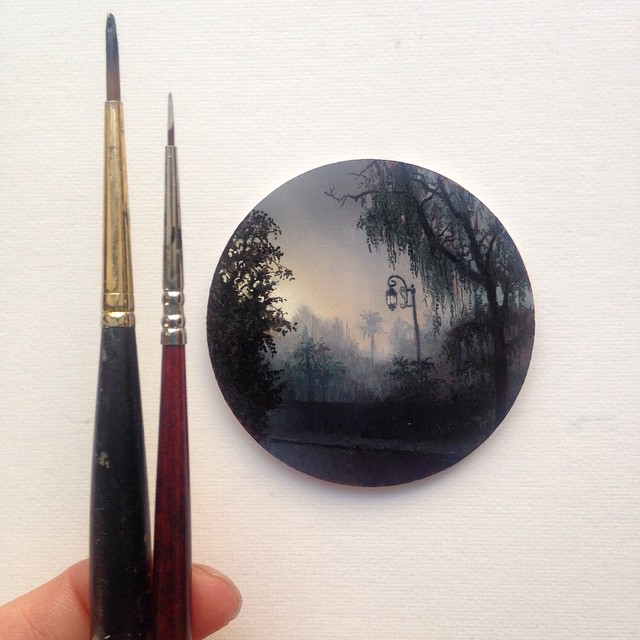 Sleep has never come easy for her. Even as a child, she was an early riser. “But you must sleep, you must rest,” her mother said. “If you do not sleep, you will not grow,” her father said. The fact was, she didn’t want to grow. She liked being tiny, economical. She did not gauge any advantage in taking up more space. Her parents slept in a larger bed. Neither could sit in the gap between the wooden chests in the attic to read a book with a flashlight. She could hide, she could disappear, any time she wanted to. She’d just close her eyes, draw in her legs, wrap her arms around herself, and she was as miniscule as a period at the end of a sentence. But of course, she did grow, slowly enough that she hardly noticed. As a child she fit neatly into the world; now she stretches the world so it fits around her. Most of the time, this doesn’t bother her. But when sleep eludes her like it did this morning, when she gazes at the lamppost across a deserted street before the break of day, she longs for the impossible. Dina Brodsky Cycling Guide to Lilliput, Prologue—artist statement “ . . . while the wanderer who is adept in meditation can use a small concentration object, such as a pebble, the beginner should use one the size of a barn door . . . ” —the Vimuttimagga, following an oral tradition traced to 50 B.C. The year I turned eighteen, I discovered two things that have become a permanent part of my life. The first was painting; the second was long-distance bicycling. Over the following fifteen years, I have continued to do both—painting became a passion and a career, while long-distance cycling tours became my preferred mode of travel, a way to gather ideas and information for the next year of painting. I’ve always been drawn to miniature painting, studying first Islamic miniature art, then medieval manuscript illumination, combining that with the classical painting techniques I learned through the years. I used to treat miniature painting as a guilty pleasure, something I did almost entirely for myself, since they were too small to exhibit. But then I realized that the moments when I am most excited and inspired by painting are those that I spend working on my miniatures. The series “Cycling Guide to Lilliput” is a combination of my twin passions. Each miniature is an attempt to capture a specific moment throughout my travels that I can return to vividly in my memory. I like to think that the reason my works have gotten so tiny over the years is that painting itself is partially an act of meditation, of being able to hold something still enough in my mind that I can capture an image of it. As it becomes easier to slip into that meditative state, the object I need to concentrate on becomes smaller: economy by way of experience. The current exhibition is the prologue to the larger series, which I plan to be working on over the next few years. |
|
||||
| Copyright © 1999 – 2024 Juked |

|

